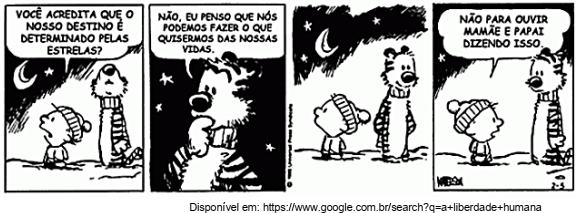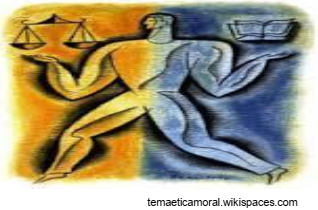Questões de Vestibular UPE 2017 para Vestibular - 1º Dia
Foram encontradas 42 questões
Quatrocentas pessoas foram entrevistadas, em uma pesquisa de opinião, sobre o consumo dos produtos A, B, e C, cujos resultados estão apresentados na tabela a seguir:

Se escolhermos ao acaso uma dentre as pessoas entrevistadas, qual é a probabilidade de ela não
consumir nenhum dos três produtos?
Qual é a medida da área e do perímetro do losango cujos vértices são A(2,3); B(1,0); C(0,3) e D(1,6)?
Utilize √10 = 3,2
Texto 1

US President Donald Trump has defended his use of social media in a series of tweets, following a row over comments he made about two MSNBC TV presenters.
"My use of social media is not presidential – it's modern day presidential," he tweeted on Saturday.
His tweets are condemned by Democrats and Republicans alike, despite the White House springing to his defence.
Mr Trump's aides have previously expressed concern over his tweets.
But the president said on Saturday that social media gave him the opportunity to connect directly to the public, bypassing the mainstream media, whose content Mr Trump regularly labels as "fake news".
"The FAKE & FRAUDULENT NEWS MEDIA is working hard to convince Republicans and others I should not use social media," he tweeted, adding: "But remember, I won the 2016 election with interviews, speeches and social media."
Mr Trump also stepped up his attack on CNN after the US news network retracted an article alleging that one of the president's aides was under investigation by Congress.
"I am extremely pleased to see that @CNN has finally been exposed as #FakeNews and garbage journalism. It's about time!"
The story that caused the upset, which was later removed from the website following an internal investigation, resulted in the resignations of three CNN journalists: Thomas Frank, investigative unit editor and Pulitzer Prize winner Eric Lictblau and Lex Harris, who oversaw the investigations unit.
Disponível em: http://www.bbc.com/news/world-us-canada-40471536.
Complete the gap according to the text.
Trump __________ uses the social media.
Texto 1

US President Donald Trump has defended his use of social media in a series of tweets, following a row over comments he made about two MSNBC TV presenters.
"My use of social media is not presidential – it's modern day presidential," he tweeted on Saturday.
His tweets are condemned by Democrats and Republicans alike, despite the White House springing to his defence.
Mr Trump's aides have previously expressed concern over his tweets.
But the president said on Saturday that social media gave him the opportunity to connect directly to the public, bypassing the mainstream media, whose content Mr Trump regularly labels as "fake news".
"The FAKE & FRAUDULENT NEWS MEDIA is working hard to convince Republicans and others I should not use social media," he tweeted, adding: "But remember, I won the 2016 election with interviews, speeches and social media."
Mr Trump also stepped up his attack on CNN after the US news network retracted an article alleging that one of the president's aides was under investigation by Congress.
"I am extremely pleased to see that @CNN has finally been exposed as #FakeNews and garbage journalism. It's about time!"
The story that caused the upset, which was later removed from the website following an internal investigation, resulted in the resignations of three CNN journalists: Thomas Frank, investigative unit editor and Pulitzer Prize winner Eric Lictblau and Lex Harris, who oversaw the investigations unit.
Disponível em: http://www.bbc.com/news/world-us-canada-40471536.
Texto 1

US President Donald Trump has defended his use of social media in a series of tweets, following a row over comments he made about two MSNBC TV presenters.
"My use of social media is not presidential – it's modern day presidential," he tweeted on Saturday.
His tweets are condemned by Democrats and Republicans alike, despite the White House springing to his defence.
Mr Trump's aides have previously expressed concern over his tweets.
But the president said on Saturday that social media gave him the opportunity to connect directly to the public, bypassing the mainstream media, whose content Mr Trump regularly labels as "fake news".
"The FAKE & FRAUDULENT NEWS MEDIA is working hard to convince Republicans and others I should not use social media," he tweeted, adding: "But remember, I won the 2016 election with interviews, speeches and social media."
Mr Trump also stepped up his attack on CNN after the US news network retracted an article alleging that one of the president's aides was under investigation by Congress.
"I am extremely pleased to see that @CNN has finally been exposed as #FakeNews and garbage journalism. It's about time!"
The story that caused the upset, which was later removed from the website following an internal investigation, resulted in the resignations of three CNN journalists: Thomas Frank, investigative unit editor and Pulitzer Prize winner Eric Lictblau and Lex Harris, who oversaw the investigations unit.
Disponível em: http://www.bbc.com/news/world-us-canada-40471536.
Texto 1

US President Donald Trump has defended his use of social media in a series of tweets, following a row over comments he made about two MSNBC TV presenters.
"My use of social media is not presidential – it's modern day presidential," he tweeted on Saturday.
His tweets are condemned by Democrats and Republicans alike, despite the White House springing to his defence.
Mr Trump's aides have previously expressed concern over his tweets.
But the president said on Saturday that social media gave him the opportunity to connect directly to the public, bypassing the mainstream media, whose content Mr Trump regularly labels as "fake news".
"The FAKE & FRAUDULENT NEWS MEDIA is working hard to convince Republicans and others I should not use social media," he tweeted, adding: "But remember, I won the 2016 election with interviews, speeches and social media."
Mr Trump also stepped up his attack on CNN after the US news network retracted an article alleging that one of the president's aides was under investigation by Congress.
"I am extremely pleased to see that @CNN has finally been exposed as #FakeNews and garbage journalism. It's about time!"
The story that caused the upset, which was later removed from the website following an internal investigation, resulted in the resignations of three CNN journalists: Thomas Frank, investigative unit editor and Pulitzer Prize winner Eric Lictblau and Lex Harris, who oversaw the investigations unit.
Disponível em: http://www.bbc.com/news/world-us-canada-40471536.
Texto 2

Texto 3

Dinner and a movie. A walk in a park after a picnic for two. They might not be original, but these are classic date ideas.
Do people your age go out on dates? Or are you more likely to hang out with a big group of people that includes people who are seeing each other exclusively?
In "The End of Courtship?" Alex Williams writes about Shani Silver, who recently waited to hear from the guy who had asked her on a "date" that evening: at 10 p.m., he texted to ask if she wanted to join him and "a bunch of friends from college" at the place where they were hanging out:
Turned off, she fired back a text message, politely declining. But in retrospect, she might have adjusted her expectations. "The word 'date‘ should almost be stricken from the dictionary," Ms. Silver said. "Dating culture has evolved to a cycle of text messages, each one requiring the code-breaking skills of a cold war spy to interpret."
"It‘s one step below a date, and one step above a high-five," she added. Dinner at a romantic new bistro? Forget it. Women in their 20s these days are lucky to get a last-minute text to tag along. Raised in the age of so-called "hookup culture," millennials — who are reaching an age where they are starting to think about settling down — are subverting the rules of courtship.
Instead of dinner and a movie, which seems as obsolete as a rotary phone, they rendezvous over phone texts, Facebook posts, instant messages and other "non-dates" that are leaving a generation confused about how to land a boyfriend or girlfriend.
"The new date is 'hanging out,' " said Denise Hewett, 24, an associate television producer in Manhattan, who is currently developing a show about this frustrating new romantic landscape. As one male friend recently told her: "I don‘t like to take girls out. I like to have them join in on what I‘m doing — going to an event, a concert."
(…) Relationship experts point to technology as another factor in the upending of dating culture.
Traditional courtship — picking up the telephone and asking someone on a date — required courage, strategic planning and a considerable investment of ego (by telephone, rejection stings). Not so with texting, e-mail, Twitter or other forms of "asynchronous communication," as techies call it. In the context of dating, it removes much of the need for charm; it‘s more like dropping a line in the water and hoping for a nibble.
"I‘ve seen men put more effort into finding a movie to watch on Netflix Instant than composing a coherent message to ask a woman out," said Anna Goldfarb, 34, an author and blogger in Moorestown, N.J. A typical, annoying query is the last-minute: "Is anything fun going on tonight?" (…)
BY SHANNON DOYNE Disponível em: https://mobile.nytimes.com/blogs/learning/2013/01/14/ is-the-date-a-thing-of-the-past/? Adaptado.
Texto 3

Dinner and a movie. A walk in a park after a picnic for two. They might not be original, but these are classic date ideas.
Do people your age go out on dates? Or are you more likely to hang out with a big group of people that includes people who are seeing each other exclusively?
In "The End of Courtship?" Alex Williams writes about Shani Silver, who recently waited to hear from the guy who had asked her on a "date" that evening: at 10 p.m., he texted to ask if she wanted to join him and "a bunch of friends from college" at the place where they were hanging out:
Turned off, she fired back a text message, politely declining. But in retrospect, she might have adjusted her expectations. "The word 'date‘ should almost be stricken from the dictionary," Ms. Silver said. "Dating culture has evolved to a cycle of text messages, each one requiring the code-breaking skills of a cold war spy to interpret."
"It‘s one step below a date, and one step above a high-five," she added. Dinner at a romantic new bistro? Forget it. Women in their 20s these days are lucky to get a last-minute text to tag along. Raised in the age of so-called "hookup culture," millennials — who are reaching an age where they are starting to think about settling down — are subverting the rules of courtship.
Instead of dinner and a movie, which seems as obsolete as a rotary phone, they rendezvous over phone texts, Facebook posts, instant messages and other "non-dates" that are leaving a generation confused about how to land a boyfriend or girlfriend.
"The new date is 'hanging out,' " said Denise Hewett, 24, an associate television producer in Manhattan, who is currently developing a show about this frustrating new romantic landscape. As one male friend recently told her: "I don‘t like to take girls out. I like to have them join in on what I‘m doing — going to an event, a concert."
(…) Relationship experts point to technology as another factor in the upending of dating culture.
Traditional courtship — picking up the telephone and asking someone on a date — required courage, strategic planning and a considerable investment of ego (by telephone, rejection stings). Not so with texting, e-mail, Twitter or other forms of "asynchronous communication," as techies call it. In the context of dating, it removes much of the need for charm; it‘s more like dropping a line in the water and hoping for a nibble.
"I‘ve seen men put more effort into finding a movie to watch on Netflix Instant than composing a coherent message to ask a woman out," said Anna Goldfarb, 34, an author and blogger in Moorestown, N.J. A typical, annoying query is the last-minute: "Is anything fun going on tonight?" (…)
BY SHANNON DOYNE Disponível em: https://mobile.nytimes.com/blogs/learning/2013/01/14/ is-the-date-a-thing-of-the-past/? Adaptado.
Texto 3

Dinner and a movie. A walk in a park after a picnic for two. They might not be original, but these are classic date ideas.
Do people your age go out on dates? Or are you more likely to hang out with a big group of people that includes people who are seeing each other exclusively?
In "The End of Courtship?" Alex Williams writes about Shani Silver, who recently waited to hear from the guy who had asked her on a "date" that evening: at 10 p.m., he texted to ask if she wanted to join him and "a bunch of friends from college" at the place where they were hanging out:
Turned off, she fired back a text message, politely declining. But in retrospect, she might have adjusted her expectations. "The word 'date‘ should almost be stricken from the dictionary," Ms. Silver said. "Dating culture has evolved to a cycle of text messages, each one requiring the code-breaking skills of a cold war spy to interpret."
"It‘s one step below a date, and one step above a high-five," she added. Dinner at a romantic new bistro? Forget it. Women in their 20s these days are lucky to get a last-minute text to tag along. Raised in the age of so-called "hookup culture," millennials — who are reaching an age where they are starting to think about settling down — are subverting the rules of courtship.
Instead of dinner and a movie, which seems as obsolete as a rotary phone, they rendezvous over phone texts, Facebook posts, instant messages and other "non-dates" that are leaving a generation confused about how to land a boyfriend or girlfriend.
"The new date is 'hanging out,' " said Denise Hewett, 24, an associate television producer in Manhattan, who is currently developing a show about this frustrating new romantic landscape. As one male friend recently told her: "I don‘t like to take girls out. I like to have them join in on what I‘m doing — going to an event, a concert."
(…) Relationship experts point to technology as another factor in the upending of dating culture.
Traditional courtship — picking up the telephone and asking someone on a date — required courage, strategic planning and a considerable investment of ego (by telephone, rejection stings). Not so with texting, e-mail, Twitter or other forms of "asynchronous communication," as techies call it. In the context of dating, it removes much of the need for charm; it‘s more like dropping a line in the water and hoping for a nibble.
"I‘ve seen men put more effort into finding a movie to watch on Netflix Instant than composing a coherent message to ask a woman out," said Anna Goldfarb, 34, an author and blogger in Moorestown, N.J. A typical, annoying query is the last-minute: "Is anything fun going on tonight?" (…)
BY SHANNON DOYNE Disponível em: https://mobile.nytimes.com/blogs/learning/2013/01/14/ is-the-date-a-thing-of-the-past/? Adaptado.
Observe o parágrafo 4: “Instead of dinner and a movie, which seems as obsolete as a rotary phone, they rendezvous over phone texts, Facebook posts, instant messages and other “non-dates” that are leaving a generation confused about how to land a boyfriend or girlfriend.”
As partes sublinhadas contêm, respectivamente,
Texto 3

Dinner and a movie. A walk in a park after a picnic for two. They might not be original, but these are classic date ideas.
Do people your age go out on dates? Or are you more likely to hang out with a big group of people that includes people who are seeing each other exclusively?
In "The End of Courtship?" Alex Williams writes about Shani Silver, who recently waited to hear from the guy who had asked her on a "date" that evening: at 10 p.m., he texted to ask if she wanted to join him and "a bunch of friends from college" at the place where they were hanging out:
Turned off, she fired back a text message, politely declining. But in retrospect, she might have adjusted her expectations. "The word 'date‘ should almost be stricken from the dictionary," Ms. Silver said. "Dating culture has evolved to a cycle of text messages, each one requiring the code-breaking skills of a cold war spy to interpret."
"It‘s one step below a date, and one step above a high-five," she added. Dinner at a romantic new bistro? Forget it. Women in their 20s these days are lucky to get a last-minute text to tag along. Raised in the age of so-called "hookup culture," millennials — who are reaching an age where they are starting to think about settling down — are subverting the rules of courtship.
Instead of dinner and a movie, which seems as obsolete as a rotary phone, they rendezvous over phone texts, Facebook posts, instant messages and other "non-dates" that are leaving a generation confused about how to land a boyfriend or girlfriend.
"The new date is 'hanging out,' " said Denise Hewett, 24, an associate television producer in Manhattan, who is currently developing a show about this frustrating new romantic landscape. As one male friend recently told her: "I don‘t like to take girls out. I like to have them join in on what I‘m doing — going to an event, a concert."
(…) Relationship experts point to technology as another factor in the upending of dating culture.
Traditional courtship — picking up the telephone and asking someone on a date — required courage, strategic planning and a considerable investment of ego (by telephone, rejection stings). Not so with texting, e-mail, Twitter or other forms of "asynchronous communication," as techies call it. In the context of dating, it removes much of the need for charm; it‘s more like dropping a line in the water and hoping for a nibble.
"I‘ve seen men put more effort into finding a movie to watch on Netflix Instant than composing a coherent message to ask a woman out," said Anna Goldfarb, 34, an author and blogger in Moorestown, N.J. A typical, annoying query is the last-minute: "Is anything fun going on tonight?" (…)
BY SHANNON DOYNE Disponível em: https://mobile.nytimes.com/blogs/learning/2013/01/14/ is-the-date-a-thing-of-the-past/? Adaptado.
Leia o texto a seguir:

Mesmo quando se pretendeu a política, a filosofia sempre teve significado político. Filosofando, o homem chega a si mesmo e encontra razão para moldar e julgar politicamente sua associação com os outros homens.
(JASPERS, Karl. Introdução ao pensamento filosófico, São Paulo: Cultrix, 1999, p. 55. Adaptado)
O texto acima retrata, com clareza, a dimensão do saber filosófico no âmbito da política. Sobre esse
assunto, assinale a alternativa CORRETA.
Leia o texto a seguir sobre a concepção do Estado Democrático.
Segundo Karl Marx, o Estado é o organismo de dominação de classe, de opressão de uma classe por outra. O Estado representa a violência estabelecida e organizada, a violência legal. Ele é um instrumento, não de conciliação, mas sim de luta das classes.
(POLITZER, Georges. Princípios Fundamentais de Filosofia. São Paulo: Hemus, 1954, p. 328.)
Na citação acima, o autor configura uma leitura crítico-reflexiva sobre a concepção do Estado na perspectiva da filosofia de Karl Marx. Com relação a essa temática, é CORRETO afirmar que
Atente ao texto a seguir sobre o nascimento da Ciência Moderna:
O nascimento da Ciência Moderna fica incompreensível sem o trabalho crítico dos filósofos, que desmontaram as ideias teóricas do aristotelismo e do geocentrismo ptolomaico, rompendo com esses esquemas considerados caducos para quem precisava definir o homem por sua liberdade ou autonomia.
(JAPIASSU, Hilton. Como Nasceu a Ciência Moderna. Rio de Janeiro: Imago, 2007, p. 37.)
O texto acima retrata, com clareza, a significância do trabalho crítico dos filósofos no plano do conhecimento científico moderno. Sobre esse assunto, assinale a alternativa CORRETA.
Sobre a Liberdade Humana, analise os textos a seguir:

É o que traduzirei dizendo que o homem está condenado a ser livre. Condenado porque não se criou a si próprio; e, no entanto, livre porque, uma vez lançado ao mundo, é responsável por tudo quanto fizer.
(SARTRE, Jean-Paul. O existencialismo é um Humanismo. São Paulo: 1973, p. 15.)
Com base no pensamento filosófico de Sartre sobre a liberdade, assinale a alternativa CORRETA.
Leia o texto a seguir sobre a Moral e a Ética:
A ética é a teoria ou ciência do comportamento moral dos homens em sociedade. Ou seja, é ciência de uma forma específica de comportamento humano.
(VAZQUEZ, Adolfo Sanchez. Ética. Rio de Janeiro: Civilização Brasileira, 1997, p. 12.)

O autor acima enfatiza a singularidade da definição sobre ética. No que se refere à temática, assinale
a alternativa CORRETA.
Considere o texto a seguir sobre o paradigma da Modernidade.

Não nos esqueçamos de outra não menos importante verdade histórica: a Revolução Científica foi profetizada por Bacon, realizada por Galileu, tematizada por Descartes, mas só concluída e sistematizada por Newton.
(JAPIASSU, HIlton. Como Nasceu a Ciência Moderna. Rio de Janeiro: Imago, 2007, p. 112. Adaptado.)
O autor acima retrata, com singularidade, alguns dos expoentes do pensamento moderno. Sobre esse
assunto, assinale a alternativa CORRETA.
